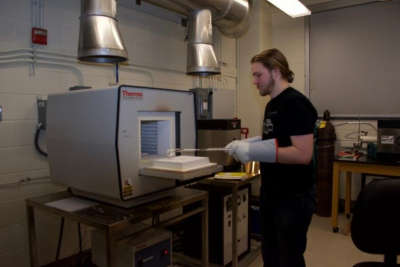When you run scientific studies that include infants, something will always go wrong. Families will be late or sick. The babies won’t behave.

Matt Hartman, Author
When you run scientific studies that include infants, something will always go wrong. Families will be late or sick. The babies won’t behave. Or maybe, as happened at the Wilbourn Infant Laboratory at Duke (WILD), you’ll have to make a last-minute run to the store to buy a big pack of toothbrushes.
In an interactive study, 20-month-old infants played with a variety of objects—things like a fake cookie and a toy apple, all of which the researchers had ensured were safe for infants. “We had it down,” said Makeba Wilbourn, the lab’s director and an associate professor of the practice of psychology and neuroscience. But there was also a toothbrush.
“What does the kid do? Put the toothbrush right in its mouth,” Wilbourn said. “Of course they did! But we only had one toothbrush. It never dawned on us.”
It was a small problem, but Wilbourn uses it to teach a big lesson: conducting research means responding to myriad minor crises by drawing on a wide variety of specialized forms of knowledge (including what infants will do when they find something as novel and exciting as a toothbrush). That’s why Wilbourn and others across Duke make it a priority to create opportunities for undergraduate students to participate in real research projects. It leads to learnings that can’t be replicated in the classroom.
“There’s no cheat sheet,” Willbourn said. “There’s no magic formula. You just have to buckle up and go through it.”
Read the whole story here: https://trinity.duke.edu/undergraduates-are-doing-real-research-trinity…